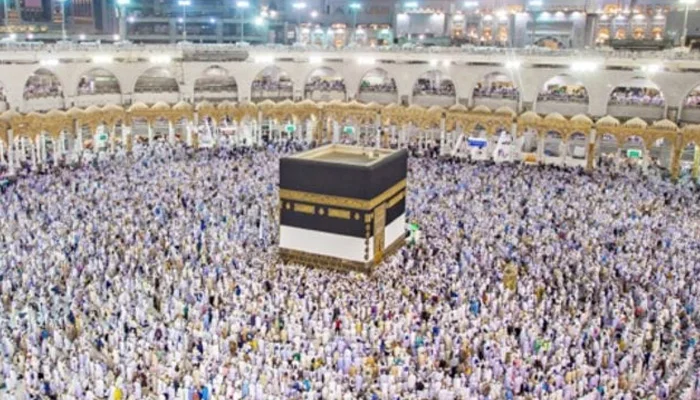UNITED NATIONS: Pakistan has demanded accountability for the “grave” Israeli atrocity crimes committed in Gaza, and an end to the occupying power’s illegal actions in the West Bank, including forced displacements, illegal settlements, and annexations.
Speaking in the UN Security Council, Ambassador Usman Jadoon, acting permanent representative of Pakistan to the UN, condemned “the killing of more than 68,000 innocent Palestinians, mostly women and children”, in Gaza, stressing: “The ceasefire, the release of hostages and Palestinian prisoners, and the restoration of humanitarian flows are welcome steps.”
At the same time, he denounced Israel’s continued attacks and aid restrictions. He rejected “the Israeli Knesset’s preliminary approval of draft laws to impose Israeli sovereignty over the occupied West Bank” as blatant violations of international law.
The Pakistani envoy also demanded an end to Israeli illegal actions in the West Bank, including forced displacements, upholding of the legal and historical status of Al-Haram Al-Sharif – Al-Aqsa Mosque, and the unhindered functioning of the United Nations Relief and Works Agency for Palestine Refugees in the Near East (UNRWA).
“As reaffirmed by the International Court of Justice (ICJ) in its advisory opinion yesterday, Israel is under an obligation to facilitate relief provided by the UN and its entities, particularly UNRWA,” Ambassador Jadoon pointed out.
In addition, he stressed the need for the launch of a credible, time-bound political process consistent with international legitimacy and relevant UN resolutions to establish an independent, sovereign, and contiguous State of Palestine, based on the pre-1967 borders with Al-Quds Al-Sharif as its capital.
In his remarks, Ambassador Jadoon also welcomed the peace efforts led by President Donald Trump and commended the crucial role played by the mediators—Egypt, Qatar, Türkiye, and the United States —in facilitating the negotiations.
“We sincerely hope these efforts will yield sustainable results, including a permanent cessation of hostilities and a just, comprehensive and lasting peace.”
“Looking ahead,” the Pakistani envoy said, “the roles of the UN, the Palestinian Authority, and the Palestinian people will be vital to ensuring legitimate governance, reconstruction, and institution-building in Gaza”, along with the Security Council whose role will also be critical for the next phases of the peace plan including for designing and mandating the deployment of an international stabilization force to fulfill its tasks.
Pakistan, he said, will continue to work with all partners to advance these shared objectives and to help restore peace, justice, and dignity to the Palestinian people.
Briefing the 15-member Council, the UN’s Deputy Middle East envoy, Ramiz Alakbarov, said that the Gaza ceasefire provides a rare opportunity to end one of the most destructive phases of the wider Israel-Palestine conflict.
Alakbarov warned that without decisive support for reconstruction and aid delivery, the region risks sliding back into violence.
The fragile truce, achieved through broad agreement over President Trump’s 20-point plan earlier this month, has created “a momentous but precarious juncture”, he said.
“The agreement represents hope for a better future, but the dynamics are extremely fragile,” he said. “A return to conflict must be avoided at all costs.”
Alakbarov commended the mediation efforts of the US, Qatar, Egypt and Türkiye, calling the ceasefire “a critical breakthrough” that must be consolidated through both restraint and cooperation.
He urged the immediate return of the remains of deceased hostages and called for humanitarian aid to enter the enclave “at scale” to meet what he described.
Since the truce took effect, the UN and its partners have expanded relief operations across Gaza. Alakbarov noted the UN’s 60-day humanitarian plan, launched to streamline customs procedures, increase access routes, and restore basic services, adding that the flow of assistance had risen by 46 per cent in the first week of the ceasefire.
But he warned that access remained limited.
“Much more still needs to be done,” he said, citing the need for more crossings, safe passage for aid workers, and the sustained entry of fuel and essential goods.
Ongoing violence – including Israeli strikes, Palestinian militant attacks and apparent reprisals by armed groups – continued to jeopardize relief efforts and stability in the territory, he added.
















